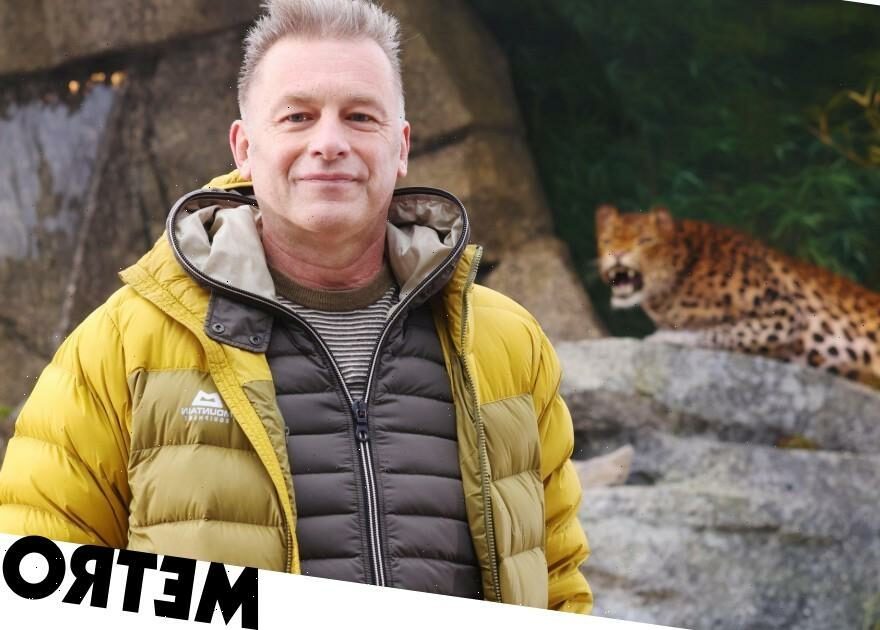It’s a chilly morning on London’s South Bank and a whole world away from the lush green jungles that Chris Packham featured in his recent documentaries for National Geographic’s Big Cat Week.
But the environmentalist and presenter, 60, is pointing out the nature all around us – and his boyish enthusiasm is infectious.
‘I’ve seen at least 15 bird species this morning. Peregrine falcons – the fastest birds in the world – nest just over there,’ he says, pointing down the Thames.
‘There are cormorants swimming down here, I even saw an eider duck earlier. There’s loads of wildlife here.’
Packham’s passion for the world around him was sparked as a child when ‘my parents used to scrounge National Geographic magazine off someone who was wealthy enough to buy them’.
But times have changed since he was young and he now believes it is the younger generation that should be leading the fight against climate change.
I’m 60 now!’ he says. ‘It’s not about old guys like me. We don’t need another David Attenborough or Bill Oddie – we need hundreds of thousands of voices.’
Megan McCubbin, Packham’s stepdaughter, is a perfect example of the climate-conscious younger generation.
The conservationist joined her stepdad in hosting Springwatch in 2020 and is currently filming a documentary about rhinos in South Africa. But the focus should be on empowering people even younger, Packham says.
‘My stepdaughter is 26 but I’m interested in 16-year-olds having a voice,’ he says. ‘The climate strikes and Fridays For Future marches have been absolutely phenomenal – that’s more inspirational than crusty old conservationists like me saying something.’
He hopes that raising awareness of the plight of animals around the world will convince people of all ages to take action themselves.
But despite the popularity of wildlife documentaries, he worries that they don’t always paint the full picture.
‘These animals are not having an entirely cosy time,’ he says.
‘Lions’ range has declined by 90% since the start of the century. You turn on the TV and think lions are very common because they’re always on your TV, romping around and eating buffalo, but in fact human-wildlife conflict is still an issue and people are getting eaten, trophy hunting is a problem, as well as loss of habitat through infrastructure projects and road building.
‘Africa is not a paradise, it’s just like our country – it’s got roads, it’s got factories, it’s got farmland.’
Many miles away in the UK, it’s hard for people to understand the impact they’re having on these far off places.
‘We are all connected globally – every single time you put something in your mouth, which fortunately many of us are able to do in the UK, we are joined with another part of the world,’ says Packham. ‘So although it seems like a big world, it isn’t really.
‘We need to look after wildlife at home – we’re one of the most nature-depleted countries in the world – but it’s our duty as citizens of planet Earth to look after other parts of the world, perhaps especially when they don’t have the same resources that we do.’
Source: Read Full Article


